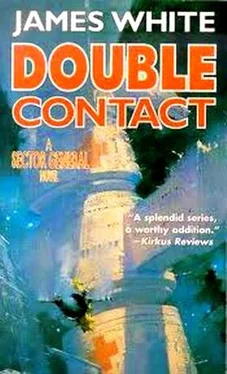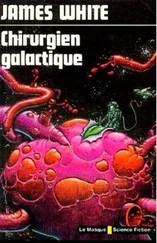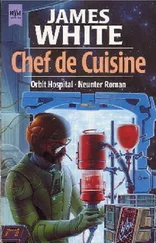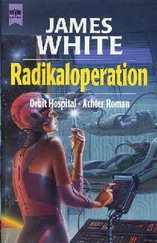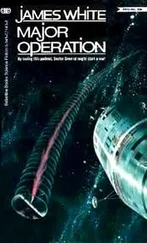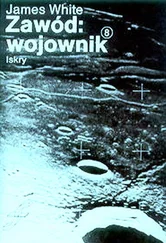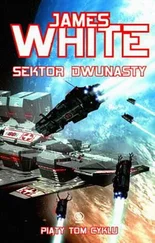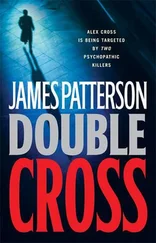“Sorry, friend Fletcher,” he said as he did so, “I’m afraid that you’re still unwelcome here. But I’ve been thinking about a possible explanation for that, and for the high sensitivity these people have towards external physical contact, allied to the strange fact that, in both the ship and its crew robots, their defenses are ultra-short range. Surely that is a strange type of weapon to use in space.”
“The weapon used against them was not short-range,” said the captain. “It blew a large hole in their hull and, to a lesser degree, in the defunct crew robot we examined. But go on.”
“During your show,” Prilicla resumed, “I received the feeling that the survivor was being given information for the first time. There was excitement, wonder, but a strangely reduced level of surprise. It was almost as if the survivor was expecting, or maybe just hoping, to meet other life-forms in space. If I’m right, that would mean that interstellar travel was new to it, or that this was its first time out and it was exploring, perhaps even searching for the planet it has found. But when you showed the Hudla sequence, there I detected subtle changes in its emotions. There was an odd combination of fear, dread, hatred, and, strangely, familiarity. Hudla is not a pleasant world to people who are not Hudlars and, I would guess, neither is the survivor’s. I realize this is speculation but I have the feeling that it went out looking for another and better world. The presence of its ship in close orbit could mean that it found it.”
The other made a gesture of impatience. “An interesting theory, but it doesn’t take into account the fact that an as-yet unknown agency used an offensive weapon against it.”
Prilicla hated telling the captain that he thought it was wrong, especially at this short range because he would feel the other’s annoyance at full intensity. He said gently, “Are we quite sure about that? Consider the type of blast damage to the ship and the robot taken aboard Terragar, and that this species may be new to interstellar and hyperspatial flight and the distress beacons associated with it. Let’s suppose that they found an uninhabited planet, green and pleasant and without the violent meteorology of home and that they signaled its position by detonating — not a distress beacon because if they were new to space they would not expect rescue — but a similar device that would give an accurate position fix. The signaling device was untried and it blew up in their faces. That’s the one we suspected might be a weapons discharge. Terragar responded before we could and needed to detonate its own distress beacon. But the point I’m making is that the damage to the alien ship might have been accidental and self-inflicted.”
“I think you’re wishing rather than theorizing, Doctor,” said the captain; then, after a moment’s thought, “But it’s a nice theory. However, it doesn’t explain why their robots as well as their ship have such prickly hides. Plainly they were expecting someone or something to attack them. And if you still think I’m wrong, don’t waste time being polite about it.”
“Their defenses may be automatic,” said Prilicla. The captain did not reply. It was beginning to have doubts which meant that the reflected annoyance caused by Prilicla':
words would be reduced. He went on. “Consider the surface design of the ship’s outer hull as well as that of the robot’s skin. Those surfaces can be touched without harm by organic digits or simple, unsophisticated, non-powered tools. If we postulate a dense or highly disturbed atmosphere on their home world, a thick, protective, and streamlined covering would be necessary for survival, as it is on the Hudlars’ planet. But suppose they have an implacable natural enemy, perhaps an intelligent and technically advanced one, and the ship’s defensive weapons are needed only on their environmentally-hostile home planet during the periods of construction, takeoff, and landing.
“And if their implacable enemy bears a physical resemblance to you DBDGs,” he ended, “that would explain much.”
The captain made an untranslatable sound. “I suppose we’re lucky that they don’t have a phobia about outsized crabs or caterpillars, or six-legged elephants or even large flying insects,” it said, then went on briskly. “About this repair job, Doctor. There will be considerable physical and mental stress involved. The quality of any work suffers with the onset of fatigue, whatever the profession. While your mind is clear, can you estimate how long you will be able to function effectively before I should remind you to stop for rest?”
Prilicla gave an estimate that was on the generous side, knowing that the other would be sure to reduce it. Nothing more was said until he had returned to the alien’s control center, after which the captain rarely stopped talking, but the words and tone were continually reassuring.
“… Before its insulated cover was pulled apart by the accident,” Fletcher was saying, “the cable loom you are working on enclosed ten individual lines. The magnifier here tells me that they are too fine to carry a dangerous level of current. But their color-coding is the same as the heavier cables that run to and spread across the outer hull, so we may assume that they perform a similar communications and/or sensory function… Dammit,
I wish I could get in there with the proper tools. Don’t take that as a criticism, Doctor, you’re doing fine.”
Prilicla remained silent because the other had repeated its non-criticism and apology several times in the last hour, and he was feeling excited and hopeful rather than irritated. An internal, light-duty sensor and communications circuit was what he had been looking for because it might mean that he had found the broken connection between the comparatively uninjured and strongly emoting crew member and its partner. Putting them in touch with each other again should go a long way to proving their rescuers’ good intentions. Carefully and with the delicacy of touch possible only to one of his fragile race, he separated, stripped, and began to splice the severed ends of a wire that was almost hair-thin.
Suddenly he jerked his hands away as a burst of emotion exploded from the crew member at the other side of the control center. In spite of the distance it was strong, sharp, intensely uncomfortable, but brief. It faded within a few seconds and so, thankfully, did the accompanying feelings of anger.
“What happened?” said Fletcher sharply. “You jerked your hands away. Are you hurt?”
“No,” Prilicla replied; then after a moment’s thought he went on, “I must have joined two of the wrong wires. It made the survivor, maybe both of them, very uncomfortable for an instant. The emotional radiation was characteristic of a sharp, unpleasant sensation, as if someone was to cross our optic nerve with our aural input then make a loud noise. Sorry, I’ll have to be more careful.”
The captain exhaled loudly and said, “Yes. But it was a natural mistake because all the wiring in that loom has the same color-coding with subtle variations in shade. The magnifier’s enhanced imaging barely picks them up but your unassisted vision can’t, good as it is. Next time hold the wire ends to be joined where I can see them clearly for my okay, then, if it doesn’t cause an adverse reaction, shield the other wires from it while you spray on the insulation. That way you won’t risk a bared, spliced length making contact or short-circuiting against an adjoining bare wire. Tell me if you’ve any doubts or problems about anything you intend doing, Doctor, otherwise carry on. I think you’re getting there.”
Prilicla carried on while the captain furnished technical and moral assistance. There were no more accidents, but there was an increasing level of emotional radiation emanating from the survivor on the undamaged section of the control center. It was not the sharp reaction characteristic of sudden discomfort, but a mixture of fear and hope so intense that his empathic faculty received it almost as a physical pain. Then suddenly there was a double explosion of feeling that made him pull back because his whole body, as well as his hands were trembling. Slowly he moved to the the inner door that he had not been allowed to enter and placed his stethoscope against the bare metal.
Читать дальше
